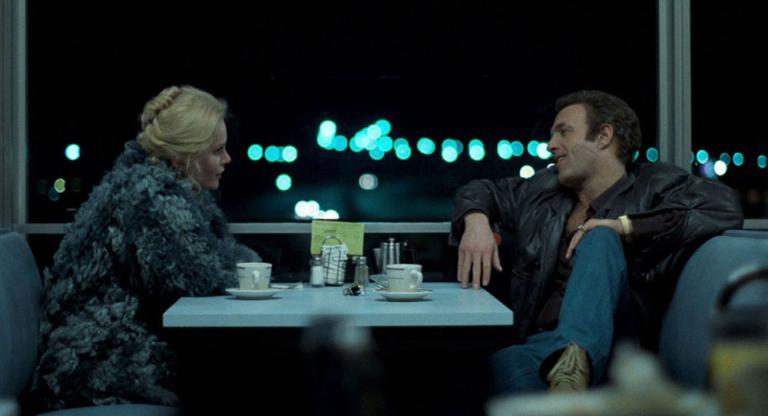Michael Mann is no stranger to obsessive re-tinkering. Starting with his first theatrical feature, Thief (1981), and for nearly every film that followed, Mann has offered director’s cuts that differ from the original theatrical edits. When Blackhat (2015), a $70 million hacker thriller bankrolled by Universal, was released to much indifference by critics and the public, Mann followed promptly with a director’s cut the following year. It premiered theatrically in a one-off screening at BAM Cinématek, introduced by Mann himself to an audience including this author. Seven years later, that cut is now easily accessible for anyone interested, and not unlike other Mann revisions, its changes are simultaneously subtle and jarring.
Like Miami Vice (2006) ten years prior, the differences between the cuts are evident from the opening scene. Where the theatrical version opened on an abstract, eerie shot of the moon (an oddly fitting segue from Universal’s iconic logo) prior to jumping into a sequence involving a nuclear plant explosion, the director’s cut opens on an out-of-focus shot of a stock-trading floor. Universal managed to obscure in their marketing for Blackhat’s initial release that the film is largely about commodities manipulation, a subject that is much less cinematic than, say, a disaster at a nuclear power plant. It’s hard to say who determined the structure of the theatrical release, but Mann’s decision to move the theatrical cut’s opening disaster sequence to the center of the film and opt for a dialogue-heavy introduction leads one to suspect that the director and studio were trying to make different films.
As with other Mann director’s cuts, the majority of the numerous changes won’t be noticed by many. Scenes are trimmed or extended, lines of dialogue are removed, some brief moments are added or excised. The major difference is pacing. Mann’s reworking of the film results in something much more action-oriented, though he does not add much more actual action. Mann’s penchant for reworking his films speaks less to his indecision than to a vision that rarely aligns with studio brass—even if it has been proven time and again that his initial impulses were, indeed, correct.
Eight years later, Blackhat has still not found a rapturous audience, a rarity for a Mann film; even his box-office misfires, like Miami Vice, have found a rabid fanbase on home video. Blackhat is a beguiling anomaly, a palpably cold financial thriller masquerading as a globe-hopping action movie starring a bonafide superhero in Chris Hemsworth. It’s a remarkably great showcase for Mann’s sudden bursts of violent action, with one sequence in particular offering a late-career glimpse of the type of grandiose violence set in public that made Heat (1995) connect so well with audiences and critics alike. The director’s cut is not likely to convert any Blackhat naysayers, though it is the markedly superior version, but it does at the very least prove that the only person who knows what a Michael Mann movie should be is Michael Mann.
The theatrical cut of Blackhat screens tonight, January 8, and throughout the month at Roxy Cinema, presented by Michael Mann Facts, who will introduce a special screening on January 13.




